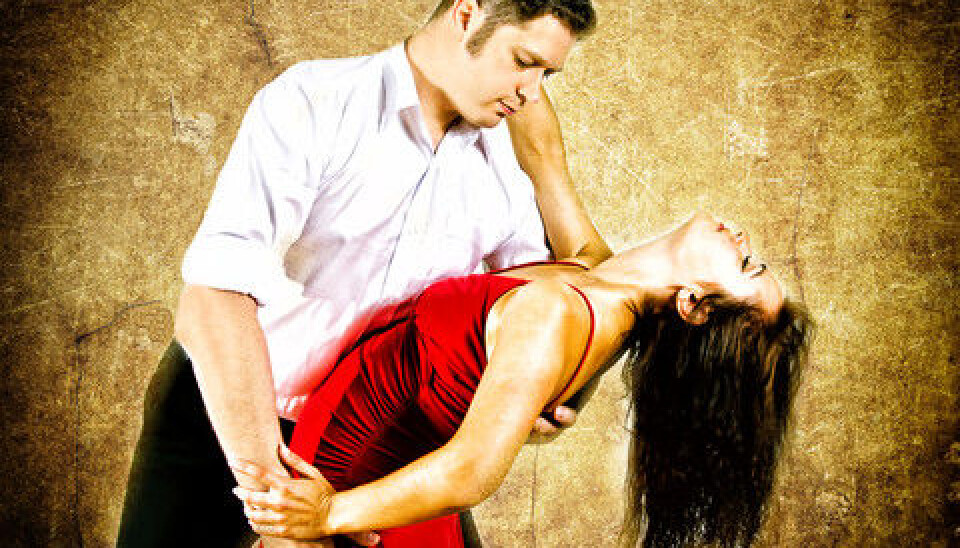An article from University of Oslo

Salsa nationalism lives in Cuba
Cuban nationalism amplified by patriotic salsa rhythms replaced Marxist ideology when the Soviet Union collapsed and the Russians went home.
Denne artikkelen er over ti år gammel og kan inneholde utdatert informasjon.
“We are Cubans, Africans and Spaniards, we are the perfect mix, the purest combination, the best in all creation”, sings Los Van Van, Cuba’s most famous salsa band, every eight seconds in the chorus of the hit “Somos Cubanos”.
"When 200 000 to 300 000 Cubans sing along and dance together during one of the big fiestas held at the La Tribuna Antiimperialista – the anti-imperialist tribune – or during the carnival of Santiago de Cuba, national identity and pride in being Cuban are reinforced," says Kjetil Klette Bøhler, PhD scholar at the Department of Musicology, University of Oslo.
Homage to the nation and the culture
He points out that, for example, the song “Somos Cubanos” (We are Cubans) will probably be too much of a homage to a shared nationality and a shared Cuban culture to appeal to us Norwegians. The reason could be that Europe has experience of Fascism and Nazism. He underscores that Cuba has a completely different experience, and points to Cuba’s dramatic history.
First, the country repeatedly struggled for independence from Spain, with the poet and liberation leader José Martí as its great hero and role model. When Spain had been defeated, the years of American influence over Cuba’s political development began.
After the revolution of 1959 and throughout the Cold War, Cuba lived with the threat of a US invasion. When the Eastern bloc and the Soviet Union collapsed, Cuba fell into a financial and social crisis that nearly brought the country to its knees.
"Once Cuba had started its economic recovery, Cuban nationalism became the dominant ideology, but it included the revolution of 1959 as part of the struggle for independence led by José Martí as well as the eviction of the Spanish colonial power," Bøhler explains.
Along with José Martí, Nicolas Guillén and Fernando Ortiz are Cuba’s major literary ideologues. All of them regarded music and other art forms as a key source of a new political consciousness of a new and free Cuba in the period from 1870 to 1987, and they helped establish the notion that Cuban forms of music and art are expressions of the Cuban identity.
These three cultural ideologues, and Martí in particular, are ideological cornerstones of contemporary revolutionary Cuba.
Salsa – a good brand name
During the years 2006‒2011, Kjetil Klette Bøhler went to Cuba on several occasions. The material for his thesis includes interviews with musicians, music lovers and a musicologist in Cuba.
"The government wants to use salsa music to help promote a love of Cuba, Cuban history and Cuban culture. By inviting several hundred thousand Cubans to dance the salsa, the government pursues its goals for nation-building and community," says Bøhler.
"Through the aesthetical enjoyment of salsa, this music policy embraces large segments of the population and sustains a shared Cuban identity among all Cubans. As a description, I have launched the concept of revolutionism, meaning a fusion of the revolutionary ideology of progress, change and independence with nationalism," he says.
Many salsa musicians are salaried by the state and have the opportunity to tour the entire country, from one Casa de la Música to the next.
A Cuban musicologist has calculated that as a proportion of total public expenditure, Cuba spends more on cultural schemes than any other country in the world. After the 1959 revolution, a large number of music and dance schools were established, as were numerous small and large musical ensembles.
"Historically speaking, however, many of the musical styles that people currently regard as arch-Cuban, such as son and mambo from the 1920s to the 1950s, did not find international popularity until they caught on in New York or Paris. Foreigners associate Cuba with its salsa music, and it’s a good brand name for the country."
Songs about prostitution and the black market
"Is homage to Cuba and Cuban culture the only permitted topic of salsa lyrics?"
In a speech in 1961, Fidel Castro stated that everything would be permitted within the context of the Revolution, but nothing outside of it. Many have stretched this interpretation considerably, but a performer such as the folk singer Silvio Rodríguez was one of the first to voice thinly veiled criticism in his lyrics.
During the crisis of the 1990s, some groups started to sing about prostitution and the black market, but these were only rare occurrences. Many were fearful that critical lyrics would end their musical careers.
Today, Bøhler sees several examples of socially critical salsa that have gained popularity among people in general and are tolerated by the authorities. The song “Carita de Pasaporte” (Passport Face) by Havana d’Primera provides the best example."
"When I was in Cuba in 2011, I heard the song at several concerts. When the band struck up the song, people immediately started singing along and dancing to the music. It was clear that the lyrics, which describe how hard life is in Cuba, with low-paid jobs, domestic violence and censorship, encourage people to attempt to obtain a passport that can bring hope of a better life somewhere else," says Bøhler.
"Immediately afterwards, the song was recorded and gained even wider notoriety by being posted on YouTube. In the comments field, numerous statements testify to how the song can reinforce and inspire political criticism of contemporary Cuba among listeners, and how music can thus promote political awareness."
"Has this criticism had any effect on the policies of the brothers Raúl and Fidel Castro?"
"Yes, absolutely. Until 14 January 2013, an ordinary Cuban could not leave Cuba without an approval stamped by a government minister. Now, all those who want to and can afford it can obtain a passport. The problem now is to obtain a visa to the desired destination," he points out.

































